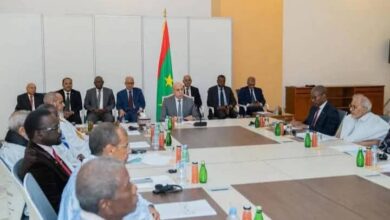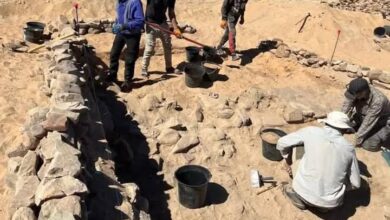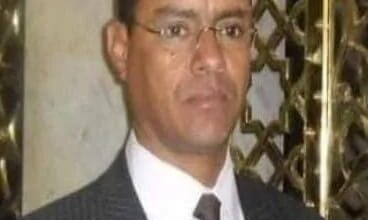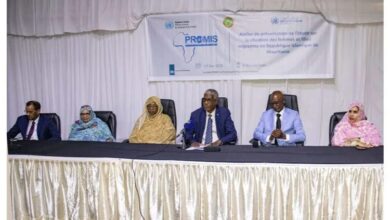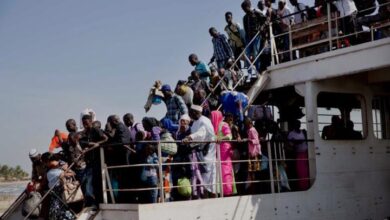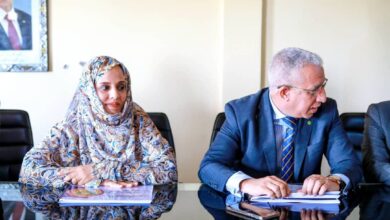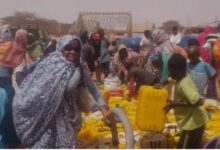Thirst in the Heart of the Capital: When Will the President Act to End the Tap Water Drought?
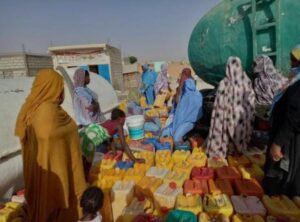
Thirst in the Heart of the Capital:
When Will the President Act to End the Tap Water Drought?
By: Mohamed Abdelrahman Abdallah
Journalist
Despite its location on the Atlantic coast and its portrayal as a promising capital in West Africa, Nouakchott suffers from chronic thirst that undermines human dignity. Water, the most basic necessity of life, has become a distant dream in many neighborhoods, amid official silence and recurring promises that rarely materialize.
A Water Quest in Arafat: From 10 a.m. to Sunset
In the “Arafat 6” neighborhood, Mariem bint Mokhtar, a housewife and mother of four, embarks on a daily journey in search of water.
She says, wiping sweat from her brow:
> “Sometimes we wait in front of the tap for hours, to no avail. Water comes for an hour or two a week, and the whole neighborhood rushes to it. We’re exhausted. Truly exhausted.”
She points to plastic containers scattered in front of neighbors’ homes and adds:
> “Last week, we bought a water tank for 15,000 old ouguiyas and shared it with the neighbors. That’s a huge amount for a family barely surviving.”
In Sebkha: Water Sold Like Gold
The situation isn’t much better in the Sebkha district, where water has become a rare commodity sold at exorbitant prices by private tankers.
Mohamed Yahya, a modest employee in the private sector, states:
> “My salary isn’t enough to cover household expenses, and I spend over 2,000 new ouguiyas monthly just on water. Is that acceptable? In a country whose officials speak of water security?”
He adds bitterly:
> “We want the president to live just one day like us… just one day without water. Let him see how we live.”
In Toujounine: Silent Taps for Weeks
In the districts of Toujounine and Dar Naim, the situation worsens by the day.
Khadija, a university student, shares her experience fetching water:
> “Every time I return from university, I find my mother exhausted after hours of waiting. Water is cut off for days at a time. We study, wash, and live without water… is this a life?”
The Interior Suffers in Silence
The suffering is not limited to the capital. In cities like Kaédi, Atar, and Akjoujt, citizens repeatedly complain of weak water supply—especially during the summer.
Ahmadou from Kaédi says:
> “Tankers are our only source of water. The Aftout project hasn’t reached us. People rely on contaminated wells


